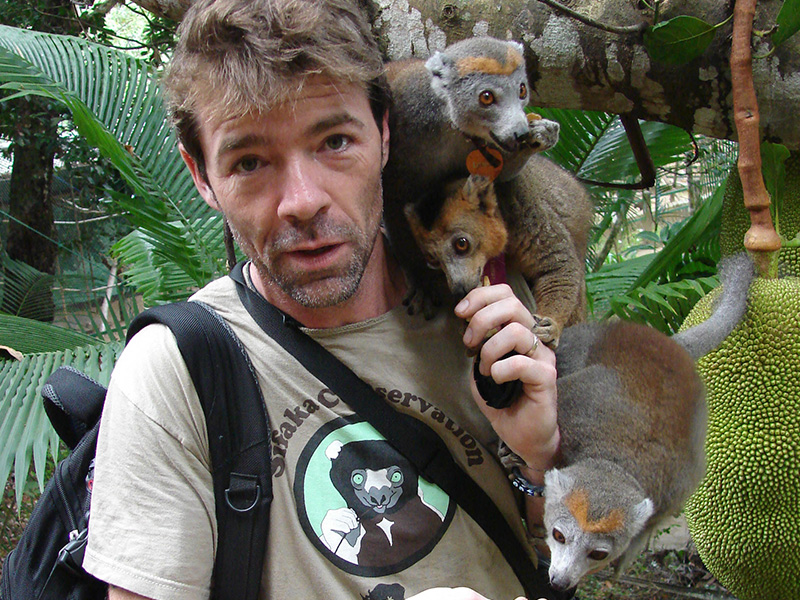Top Cotswold Visitor Attraction Breeds Endangered Greater Bamboo Lemur

Cotswold Wildlife Park Becomes the Only UK Collection to Breed Critically Endangered Greater Bamboo Lemur in 2024
Cotswold Wildlife Park has once again achieved a significant breeding milestone with one of the most critically endangered lemurs in Madagascar – the Greater Bamboo Lemur (Prolemur simus). This year, the Park stands out as the only zoological collection in the UK to successfully breed this rare species, with only two institutions worldwide recording such success in 2024. Classified as “Critically Endangered” by the International Union for the Conservation of Nature (IUCN), Greater Bamboo Lemurs face an ongoing struggle for survival, with only 36 individuals in captivity globally. Cotswold Wildlife Park is one of just seven zoological collections in the world to house this rare species.
The new addition, whose sex is yet to be confirmed, was born to breeding male Raphael and female Bijou, both participants in the European Breeding Programme (EEP). This is the fourth consecutive year that the Park has bred this species, marking an ongoing commitment to their conservation. Visitors can catch a glimpse of the new arrival exploring its enclosure in the Park's Madagascar exhibit.
According to the IUCN, lemurs are among the most endangered groups of mammals on Earth, with 98% of lemur species now threatened with extinction. The Greater Bamboo Lemur, alongside species like the Alaotran Bamboo Lemur and Crowned Sifaka, is considered one of Madagascar's most critically endangered. Once widespread across the island, their numbers dwindled to near extinction in the 20th century.
Jamie Craig, General Manager of Cotswold Wildlife Park, stated: “Lemur species are facing immense challenges due to habitat destruction and human population growth. Raising awareness and contributing to their conservation is crucial. At Cotswold Wildlife Park, we are proud to support this cause, funding key conservation sites in Madagascar and working with several projects through the Cotswold Wildlife Park Conservation Trust, including efforts to protect the Crowned Sifaka and Greater Bamboo Lemur. These animals are fantastic ambassadors for our conservation work.”
Supporting Conservation Beyond the Park
The Park actively funds two major lemur conservation projects in Madagascar: Helpsimus and Impact Madagascar. Helpsimus, which focuses on Greater Bamboo Lemurs, has reported remarkable progress, with the population almost tripling in a decade – a notable achievement for a species once on the brink of extinction. Delphine Roullet, Founder of Helpsimus, explained: “Thanks to a holistic approach that involves local communities, the Greater Bamboo Lemur population has shown exceptional resilience and growth. It is the only lemur species whose numbers are currently increasing, a testament to the ongoing conservation efforts.”
For more information and updates on this incredible breeding success, visit Cotswold Wildlife Park's Madagascar exhibit and learn more about their ongoing conservation efforts.
Cotswold Wildlife Park is open from 10.00am every day, with last admission at 4.00pm.*
Explore Gloucestershire
21 October 2024
For further information.
OTHER NEWS
